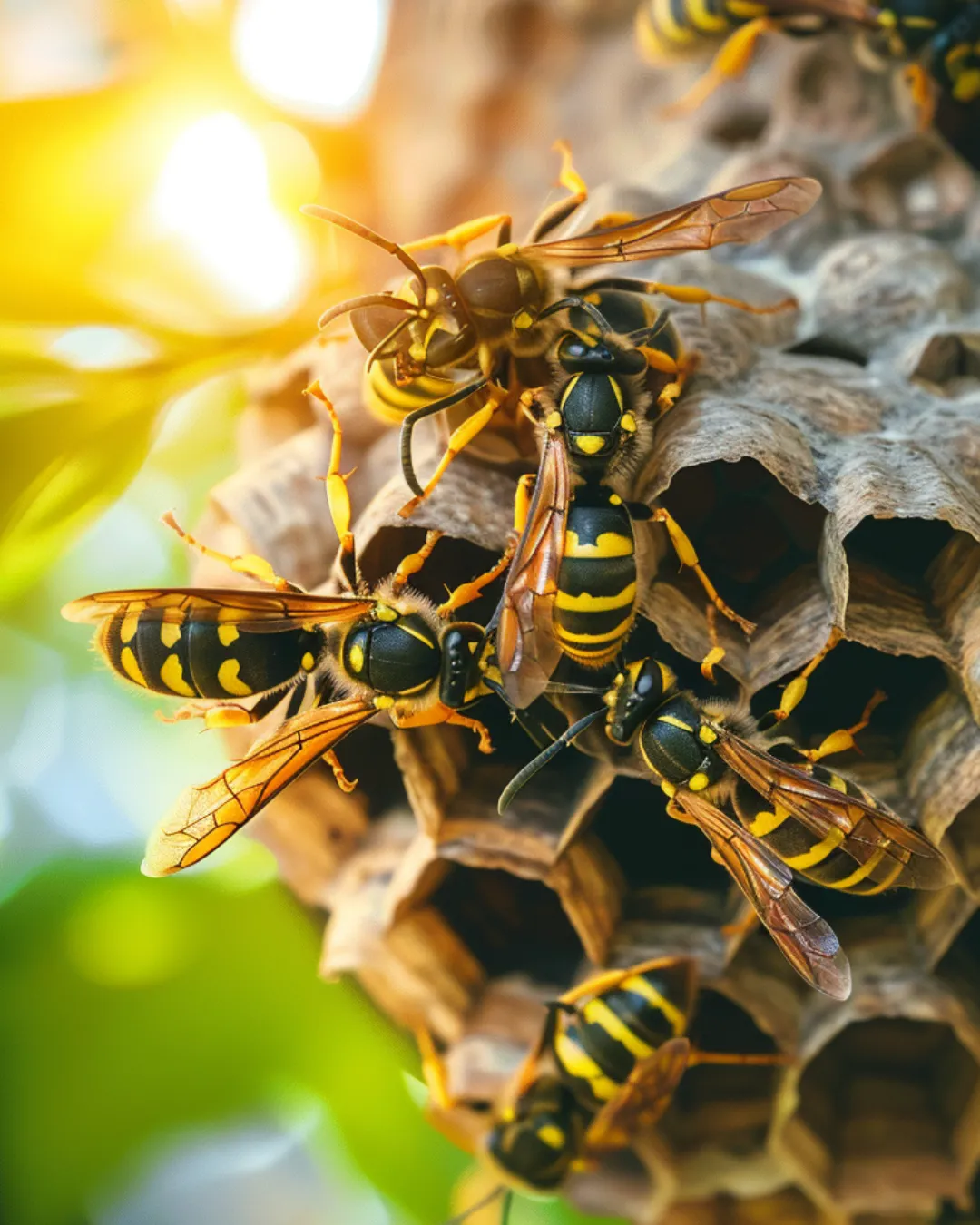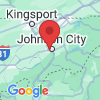The Shield Pest Journal
Check out Shield Pest Appalachia’s most recent blog posts for helpful pest prevention and control suggestions. Our blog covers from detecting common pests to creating tailored solutions in the Tennessee and Virginia areas. Do you have a pest-related question? Contact us today for experienced guidance and solutions targeted to your specific needs.

Buzz-Off Bees and Wasps: Keeping Your Yard Safe and Enjoyable
Creating a Bee and Wasp-Free Yard: A Guide to Peaceful Coexistence
Enjoying your outdoor space doesn’t have to come with the worry of bee or wasp stings. With a few strategic practices, you can significantly reduce the presence of these insects in your yard while still respecting their crucial role in the ecosystem. Here’s how to create a bee and wasp-free yard for more peaceful outdoor living.
1. Understand Attraction Points
Bees and wasps are attracted to certain conditions and elements in your yard. Understanding these can help you make changes to deter them:
Food: Open food, especially sweets and proteins, can attract wasps.
Water: Standing water sources are appealing for bees and wasps.
Plants: Certain flowering plants attract bees, while wasps hunt for insects on almost any plant.
2. Remove Attractants
Minimize the factors that draw bees and wasps to your yard:
Cover Food and Drinks: During outdoor gatherings, keep food and sweet beverages covered or indoors.
Secure Trash Bins: Ensure lids on garbage and compost bins are secure to prevent wasps from foraging for food.
Manage Standing Water: Eliminate standing water in bird baths, clogged gutters, and plant saucers to remove water sources for bees and wasps.
3. Plant Deterrents
Incorporate plants that naturally repel bees and wasps into your landscaping:
Mint: Planting mint around patios and decks can help deter wasps, as they dislike the strong odor.
Citronella: Known for its mosquito-repelling properties, citronella also works to deter various flying insects, including wasps.
Eucalyptus: The strong scent of eucalyptus is off-putting to many insects, including bees and wasps.
4. Use Decoy Nests
Wasps are territorial and less likely to build a nest if they believe another colony is nearby:
Install Decoy Nests: Place fake wasp nests in areas where you want to deter new nests. These are particularly effective in early spring when queens are looking for nesting sites.
5. Maintain the Yard
Regular yard maintenance can help prevent bees and wasps from settling in:
Trim Vegetation: Keep bushes and trees well-trimmed to reduce sheltering spots for wasps.
Fill in Burrows: Ground-nesting bees and some wasps can take up residence in burrows left by rodents or in sparse areas of the lawn. Filling these in can discourage them from nesting.
Staying Safe When You Spot a Nest: Essential Precautions
Discovering a bee or wasp nest in your yard can be alarming, especially if you or a family member is allergic to stings. While your first instinct might be to deal with it immediately, ensuring safety is paramount. Here’s what you need to know to stay safe if you spot a nest on your property.
Don’t Disturb the Nest
The most important rule upon finding a nest is to avoid disturbing it. Bees and wasps can become aggressive if they feel their home is under threat, leading to swarms that can pose significant risks to humans and pets.
Observe from a Distance
Take note of the nest's location from a safe distance. Observing activity around the nest can give you an idea of the size of the colony and the best time for removal—activity levels can vary throughout the day.
Educate Your Household
Make sure all family members, including children, are aware of the nest's location and the importance of staying away from it. Discuss the risks of disturbing a nest and ensure pets are also kept at a safe distance.
Wear Protective Clothing
If you must be near the nest (though it’s generally advised not to be), wearing protective clothing can reduce the risk of stings. Long sleeves, pants, closed shoes, and even gloves can provide a barrier against stings.
Avoid Sudden Movements
Bees and wasps are more likely to sting if they perceive fast, threatening movements near their nest. If you find yourself close to a nest, move away slowly and calmly to avoid provoking them.
Do Not Attempt DIY Removal
Attempting to remove a nest on your own can be dangerous. Over-the-counter sprays and home remedies are often ineffective and can provoke bees and wasps into defending their nest aggressively.
Call Professional Pest Control Services
Professional pest control services, like Shield Pest, are equipped to safely remove bee and wasp nests. Experts can assess the situation, determine the safest method of removal, and relocate or eliminate the nest with minimal risk to your family and the environment.
Preparing for Professional Removal
Before the pest control team arrives, secure pets indoors and ensure that children stay away from the affected area. Provide the professionals with as much information as possible about the nest and any observed activity patterns.
Myth-Busting: Uncovering the Truth About Bees and Wasps
Myth 1: All Bees and Wasps are Aggressive
Truth: Most bees and wasps will not attack unless they feel threatened. Bees, in particular, are generally more interested in finding pollen than in interacting with humans. Wasps can exhibit aggressive behavior when defending their nests but are otherwise not inclined to attack unprovoked.
Myth 2: Bees Can Sting Repeatedly
Truth: Honeybees have a barbed stinger that remains in the skin of their target, which means they can sting only once before dying. However, this is not true for all bee species. For example, bumblebees and many solitary bee species can sting multiple times, as can wasps.
Myth 3: Wasps Serve No Purpose
Truth: While often seen as nuisances, wasps play a critical role in the ecosystem, including pollination and controlling insect populations. Some species of wasps are particularly effective at managing pests that harm crops and gardens.
Myth 4: Removing Flowers Will Keep Bees and Wasps Away
Truth: While removing flowers may reduce your yard's attractiveness to bees, it won’t deter wasps as much, since they are also attracted to proteins found in other insects or scraps of human food. Plus, removing flowers denies many beneficial pollinators their food sources, which can harm the environment.
Myth 5: Bees and Wasps are the Same
Truth: Although they may look similar at first glance, bees and wasps belong to different families and have distinct behaviors and lifestyles. Bees are primarily pollinators and often have furry bodies, whereas wasps, which can be predators or scavengers, have smoother bodies and are more slender.
Myth 6: All Wasps are Yellow and Black
Truth: Wasps come in a variety of colors and patterns, including blue, red, and even completely black. The yellow and black pattern is common but not universal, making it important not to assume an insect’s species based solely on color.
Myth 7: Sugar Attracts Bees and Wasps Equally
Truth: While bees are attracted to sweet substances because they feed on nectar, wasps are more likely to be attracted to foods found at picnics and barbecues, including meats and sugary drinks, especially later in the season when their feeding habits change.
Shield Pest's Expert Bee and Wasp Removal Service: Safe, Effective, and Eco-Conscious
Expert Evaluation
Our trained professionals begin with a thorough inspection to identify the species involved and assess the situation. Understanding whether you're dealing with bees, wasps, or hornets is crucial for determining the most appropriate and humane approach to removal.
Eco-Conscious Removal Methods
Bee Relocation: For honeybee hives, we prioritize relocation over extermination. Collaborating with local beekeepers, we safely remove and relocate hives to areas where bees can continue their crucial pollination work without posing risks to people.
Wasp Nest Removal: For wasps and hornets, we use safe, effective methods to remove nests. Our techniques minimize risk to humans and pets and are designed to prevent the wasps from returning.
Prevention and Education
Post-removal, we provide guidance on preventing future infestations, including sealing entry points and making your property less attractive to bees and wasps. Education is a key part of our service; we aim to inform our clients about the behaviors of these insects and how to coexist with them peacefully.
Follow-Up Support
Our commitment to your safety and satisfaction includes follow-up support to ensure the effectiveness of our removal and prevention measures. We’re here to answer your questions and provide additional services as needed.
For more information or to schedule a service, visit the Shield Pest website. Let’s protect your home and the environment together.
Office:
1300 University Pkwy, Johnson City, TN 37604, United States
Call
423-379-2775
Copyright 2024. All Right Reserved.

